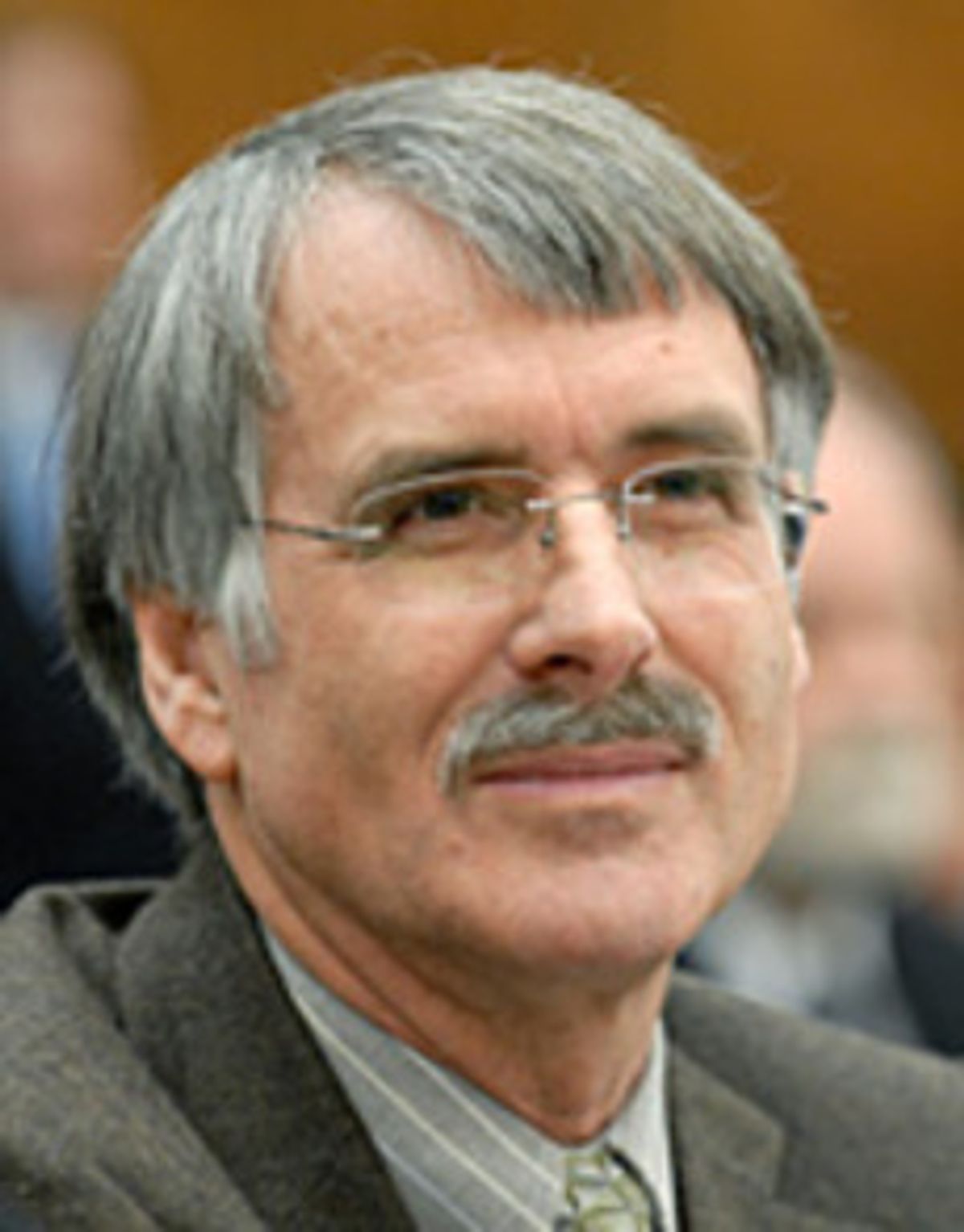At last count we had about 40 comments on the interview with you about IPCC reform, many of them hostile. Where do you think that extreme hostility is coming from? You and your colleagues must think of yourselves as honest, hard-working scientists, and yet you stand accused of being a “liar,” part of a corrupt enterprise, “the system.”
This kind of thing is not confined to climate science. There are a lot of other examples out there. It's a nasty atmosphere, and any hot topic brings this out. Climate science has become highly politicized, and climate change denial is closely related to the strong opposition many people feel at having the government interfere in their affairs in any way. Under these circumstances something like “climategate” was bound to happen. I received something like 19 pages of e-mail with extremely abusive language in them. I kept asking the mail people why our filters weren’t catching them.
Many of the hostile comments on the interview appear to come from engineers. Some express anger, for example, about IEEE’s stand on climate change, which must be some kind of misunderstanding, as IEEE as such doesn’t take positions on controversial matters of politics and policy. Are you surprised to see well educated, well credentialed individuals expressing such anger?
Yes, I am rather. Last year I gave an invited lecture at an IEEE meeting of aeronautical engineers, with about 700 in attendance. Afterwards a tremendous number of people came up to me and said they had no idea as to the nature of the evidence regarding climate change, how everything fits together. In general scientists and engineers have open minds.
In terms of the major claims that are so hotly contested-—that the earth is getting warmer, that human activity is playing a significant role, and that warming will gather pace unless we change our ways rather radically—to what extent to they rest on computer modeling and how much on observational science?
Our knowledge that the earth is warming does not come from modeling at all. It comes from a very wide variety of sources and is incontrovertible—“unequivocal,” the IPCC said in its last assessment. The main sources are temperature readings, melting of Arctic sea ice and glaciers, snow extent rise in sea level, and ocean temperatures.
What about the human role?
We can see that greenhouse gas concentrations are growing in time and that temperatures are rising, and we postulate a causal relationship. But we need computer models to test and prove that relationship. We run the models with the observed changes in the atmosphere and see what temperatures are generated, then remove the gas forcings, and compare the results. Though there's some natural variability, of course, since 1970 human-induced warming has clearly emerged from the noise.
As for prediction of future temperatures and other effects of climate change, there we rely entirely on models.
What about paleoclimatic research—ice science and such?
It plays a smaller part. It depends on use of proxies to substitute for instrumental readings, and when you go back further than 500 years, the number of such proxies drops and data get blurrier. As you go back in time annual resolution is no longer possible. We also know much more about forcings in the modern period: We have information on solar activity going back to Galileo, and we know quite a bit about volcanic activity, which affects the composition of the atmosphere significantly.
Can you say something about the widespread belief that solar activity somehow accounts for the temperature changes we’ve seen in recent decades?
That’s easily disproven. It’s nonsense. Since 1979 we've had spacecraft measuring total solar irradiance, and there's been no change—if anything the sun has cooled slightly. There's nothing in the record that indicates that the sun is responsible for any of the warming in this period.
And further back?
The sun did get somewhat more active early in the last century and probably did account for some of the warming until about 1950. The best current estimate is that it explained about one tenth of one degree Celsius of the warming, which totaled about 0.3C from 1900 to 1950. There was a solar minimum in the early 1700s and probably was partly behind the so-called Little Ice Age. Going much further back to the alternation of ice ages and interglacial periods, they were driven by subtle changes in the orbital relationships of sun and earth—the Milankovitch cycles. We learned from the study of them that small changes in solar irradiation can generate huge changes in climate. In fact, the changes in radiative forcing from the rise in greenhouse gas concentrations in the atmosphere are much larger than the changes connected with the Milankovitch cycles.
For the record, are you the person who Dave D says messed with the Australian temperature record?
I’m a native of New Zealand and have had nothing to do with the Australian record.
As a person who has contributed a great deal of time to IPCC work, do you feel that lead scientists should be directly compensated by the IPCC?
No, that would only make the process even more vulnerable to the criticism that it is somehow self-serving.



